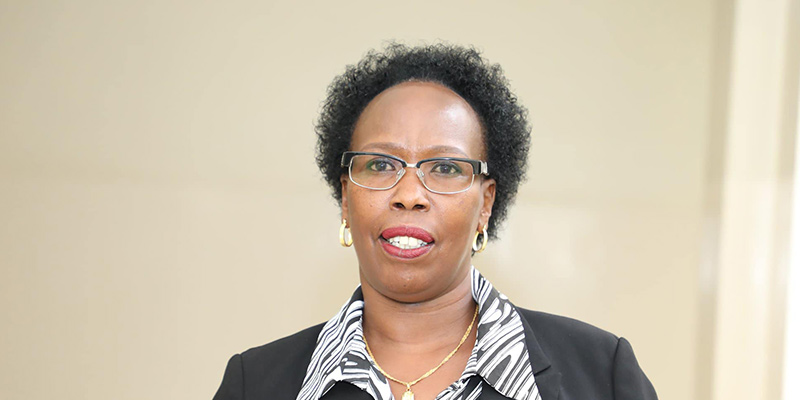Alice Jepkoech Yano, 53, has come a long way since January 1997 when she was listed among the Kanu activists who thanked President Daniel arap Moi for appointing Nicholas Biwott back to the cabinet.
Biwott, the political overlord of Elgeyo Marakwet — Yano’s county of birth — and power broker in Moi’s court known by the moniker Total Man, had been out of the cabinet since his ouster as energy minister in 1991 because of pressure from foreign donors.
Yano was admitted to the Roll of Advocates in 1995 yet, as indicated in her application, she was offering legal advice to the government-owned Kenya Industrial Estates in 1993, well before she had graduated. Such was her proximity to power that when she was selected in 2001 as one of the 15 members of the Constitution of Kenya Review Commission, no eyebrows were raised. Only Isaac Ruto — the then vocational training minister — made a disparaging remark about her in parliament to the effect that she could not represent Rift Valley Province in the review and was instead on the team “for gender”. In truth, Yano had been nominated alongside revered women’s leader Phoebe Asiyo to represent the giant Maendeleo Ya Wanawake Organisation.
Once on the review team, Yano quickly established her reputation as a divisive figure early in the constitution review process, leading a delegation of 10 members of the commission to secretly meet with Moi in a move that threatened to split the review team down the middle. Prof. Yash Pal Ghai, who had been named chairman of the CKRC, was negotiating to bring the parallel People’s Commission of Kenya, also known as the Ufungamano Initiative, into the same tent as the parliamentary process, raising fears that the ruling party would lose control of the constitutional review process. Ultimately, the two commissions were merged, bringing the total number of members to 27.
Ghai had held off taking his oath of office, unwittingly creating a power vacuum that would be exploited by Yano and other commissioners. Yano was picked as the chair of the finance and administration committee, which made two key decisions that would sully the commission’s public reputation. The first controversial decision was the purchase of 25 top-of-the-range Nissan Patrol vehicles for commissioners at a cost of KSh121.25 million.
The cost of the vehicles was slightly over a third of its KSh300 million annual budget, but the committee was not done yet. It also proposed a monthly salary of KSh3.5 million for each commissioner, and the purchase of a cellphone for each of them at Sh462,000, inclusive of connections. Although Ghai walked the commission back from the salary demands and cancelled the order for the vehicles once he had taken his oath of office and asserted his authority over the commission, the seeds of discord had already been sown.
Yano showed up at many CKRC public consultations and chaired meetings, but she was not always the face of consensus and collegiality within the commission. She was one of the 16 commissioners who disowned a draft report of the CKRC, and would be more overtly defiant when she, together with Abida Ali-Aroni (now Justice), Keriako Tobiko (now Environment Cabinet Secretary) and Mosonik arap Korir, absented themselves from the launch of the draft constitution prepared by the Commission.
Ghai did not mince his words at that launch, describing some of the commissioners as “some of the most despicable people” he had ever worked with.
After the 2002 election, Yano’s name was proposed for nomination to parliament, but the proposal was shot down. She was subsequently among eight finalists for the position of chairperson of the Interim Independent Electoral Commission. Yano served as County Attorney in Elgeyo Marakwet between 2013 and 2014 before resigning to go into private practice.
Reading from the sample writing Yano has submitted in applying for the positions of Chief Justice and Supreme Court judge, her legal practice has served underdogs deprived of jobs, freedoms and rights, and defended one parliamentary election petition. Before setting up her law practice in Kitengela, Kajiado County, Yano used to run her firm from the mezzanine floor of the KVDA Plaza in Eldoret. Two months into her occupancy, her landlord — the Kerio Valley Development Authority — stormed her premises and closed them down for five hours demanding KSh378,000 in rent arrears. Although Yano applied for an injunction against her landlord in 2002, a ruling would come nearly five years later. The courts have also found for Yano in her personal capacity on several occasions, the most significant ruling being the judgment that allowed her to repossess a five-acre plot of land from squatters and other trespassers in Eldoret municipality.
The website of the Elgeyo Marakwet branch of the Maendeleo Ya Wanawake Organisation lists Yano as its chair. MYWO is the oldest and largest non-profit voluntary women’s organisation working to improve the quality of life of rural communities in Kenya, particularly women and the youth.
Yano comes to the interview with a tacit regional claim to the Supreme Court seat previously occupied by Justice Philip Tunoi, who retired in 2016. A Kalenjin member of the Supreme Court would greatly mollify ethnic anxieties around how any 2022 presidential election petition would be decided, especially in a contest where Deputy President William is an important contender.
Yano graduated with a law degree from the University of Nairobi in 1993 and attended the Kenya School of Law for her postgraduate diploma in law 1994. She is currently studying for a master’s degree in business administration at the Africa Nazarene University.
–
Back to: Kenya Chooses Its Next Chief Justice








